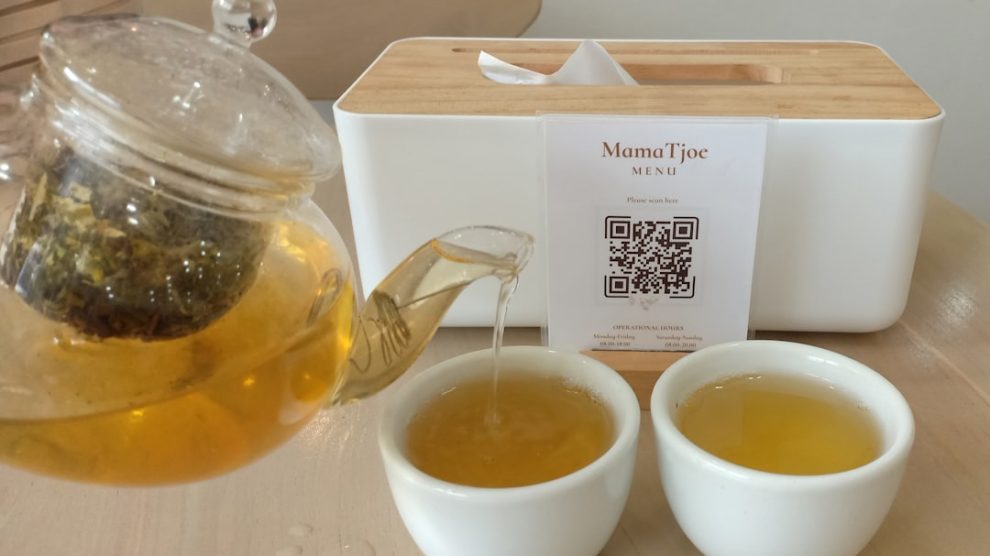Taoism, a philosophical and spiritual tradition that originated in ancient China, has roots that stretch back over two millennia. It is often attributed to the legendary figure Laozi, who is believed to have penned the foundational text, the “Tao Te Ching.” This text emphasizes living in harmony with the Tao, or the fundamental nature of the universe. As I delve into the origins of Taoism, I find it fascinating how this philosophy intertwines with various aspects of Chinese culture, including the practice of tea drinking.
Tea itself has a rich history, believed to have been discovered by Emperor Shen Nong around 2737 BCE. Initially used for medicinal purposes, tea gradually evolved into a cultural staple, becoming an integral part of social and spiritual practices. The connection between Taoism and tea is not merely coincidental; both share a profound appreciation for nature and simplicity.
The cultivation of tea plants and the art of brewing tea reflect the Taoist principles of balance and harmony. As I explore this relationship further, I realize that tea drinking is not just about the beverage itself but also about the experience it offers. The serene landscapes where tea is grown mirror the tranquil essence of Taoist philosophy, inviting practitioners to slow down and appreciate the moment.
This synergy between Taoism and tea sets the stage for a deeper understanding of how these two elements complement each other in daily life.
Key Takeaways
- Taoism and the art of tea both originated in ancient China, with Taoism emphasizing harmony with nature and the art of tea focusing on the appreciation of nature’s gifts.
- Taoism and the art of tea are deeply connected, as both emphasize the importance of mindfulness, simplicity, and the appreciation of the present moment.
- The ritual of making and serving tea in Taoism involves specific steps and gestures that symbolize respect, gratitude, and connection with nature.
- The practice of mindfulness in tea drinking is central to Taoist tea rituals, as it encourages individuals to be fully present and attentive to the sensory experience of drinking tea.
- The symbolism of tea in Taoist philosophy represents purity, tranquility, and the flow of energy, reflecting the core principles of Taoism.
The Connection Between Taoism and the Art of Tea
As I immerse myself in the art of tea, I begin to see how it embodies the core tenets of Taoism. The process of preparing and enjoying tea is a meditative practice that encourages mindfulness and presence. In Taoist thought, there is a strong emphasis on living in accordance with nature, and this is beautifully reflected in the way tea is cultivated and consumed.
Each step in the tea-making process—from selecting the leaves to brewing them—requires attention and care, echoing the Taoist belief in the importance of being attuned to one’s surroundings. Moreover, the act of sharing tea with others fosters a sense of community and connection, which aligns with the Taoist value of harmony among individuals. When I sit down with friends or family to enjoy a cup of tea, I feel a sense of unity that transcends words.
The simple act of sharing a beverage becomes a ritual that strengthens bonds and cultivates understanding. This connection between Taoism and the art of tea serves as a reminder that life’s most profound experiences often arise from simple moments spent in good company.
The Ritual of Making and Serving Tea in Taoism

The ritual of making and serving tea in Taoism is steeped in tradition and intentionality. Each movement during this process is deliberate, reflecting a deep respect for both the tea itself and the people with whom it is shared. As I engage in this ritual, I find myself drawn to the meticulous nature of preparing tea.
From warming the teapot to pouring water at just the right temperature, every action becomes an expression of mindfulness. This attention to detail transforms what could be a mundane task into a sacred practice. In Taoist tea ceremonies, there is often an emphasis on using high-quality leaves and pure water, as these elements are believed to enhance the overall experience.
I appreciate how this focus on quality mirrors the Taoist principle of valuing simplicity and authenticity. When I serve tea to others, I am not just offering a drink; I am sharing a piece of my heart and intention. The act of serving becomes an opportunity to connect with others on a deeper level, fostering an atmosphere of peace and tranquility.
The Practice of Mindfulness in Tea Drinking
Mindfulness is a cornerstone of both Taoism and the practice of tea drinking. As I take a moment to savor each sip, I become acutely aware of the flavors, aromas, and sensations that arise. This practice encourages me to be fully present, allowing distractions to fade away as I immerse myself in the experience.
In our fast-paced world, where multitasking has become the norm, I find solace in this intentional act of slowing down. Each cup of tea serves as a reminder to pause, breathe, and appreciate the beauty of the moment. Incorporating mindfulness into my tea-drinking ritual has transformed it into a form of meditation.
As I focus on the warmth of the cup in my hands or the gentle steam rising from the surface, I cultivate a sense of inner peace. This practice aligns seamlessly with Taoist teachings, which advocate for living in harmony with oneself and one’s environment. By embracing mindfulness during tea drinking, I not only enhance my appreciation for the beverage but also deepen my connection to the present moment.
The Symbolism of Tea in Taoist Philosophy
Tea holds profound symbolism within Taoist philosophy, representing concepts such as balance, harmony, and transformation. As I reflect on this symbolism, I recognize that each cup of tea embodies a journey—a journey from raw leaves to a fragrant brew that nourishes both body and spirit. This transformation mirrors the Taoist belief in the cyclical nature of life, where every ending leads to a new beginning.
Just as tea leaves release their essence when steeped in hot water, we too can let go of our burdens and embrace change. Furthermore, tea serves as a metaphor for balance in life. The delicate interplay between water temperature, steeping time, and leaf quantity reflects the importance of moderation and equilibrium in our daily lives.
When I prepare tea, I am reminded that too much or too little can disrupt the harmony of flavors—much like how excess or deficiency can affect our well-being. This understanding encourages me to seek balance not only in my tea rituals but also in my overall approach to life.
Incorporating Taoist Tea Rituals into Daily Life

Creating a Sanctuary
By creating this space for myself, I cultivate a sense of calm amidst life’s chaos. I also find joy in sharing this practice with others. Inviting friends or family to join me for a tea ceremony allows us to bond over meaningful conversations while engaging in a shared experience.
Exploring Teas and Building Relationships
Together, we can explore different types of teas, discuss their origins, and appreciate their unique flavors. This communal aspect not only enriches our relationships but also deepens our understanding of Taoist principles as we engage in mindful dialogue over cups filled with warmth.
The Power of Mindful Dialogue
The experience of sharing tea with others has a profound impact on my relationships and personal growth. Through this practice, I have come to appreciate the value of slowing down and being present in the moment, allowing me to connect with others on a deeper level.
A Path to Transformation
Ultimately, incorporating Taoist tea rituals into my daily life has been a journey of self-discovery and growth, one that I continue to nurture and explore with each passing day.
Benefits of Practicing Taoist Tea Rituals
Practicing Taoist tea rituals offers numerous benefits that extend beyond mere enjoyment of the beverage itself. One significant advantage is stress reduction; as I engage in this mindful practice, I feel my worries dissipate with each sip. The calming effects of tea combined with intentional breathing create an oasis of tranquility that rejuvenates my spirit.
This ritual serves as a reminder to prioritize self-care amidst life’s demands. Additionally, embracing these rituals fosters a greater appreciation for nature and its gifts. By learning about different teas and their origins, I develop a deeper connection to the earth and its resources.
This awareness encourages me to be more mindful about my consumption habits and promotes sustainability—an essential aspect of living harmoniously with nature as taught by Taoism. Ultimately, practicing Taoist tea rituals enriches my life by nurturing both my mental well-being and my relationship with the world around me.
Resources for Learning More about Taoism and the Art of Tea
For those interested in exploring Taoism and its connection to the art of tea further, there are numerous resources available that can deepen one’s understanding. Books such as “The Tao Te Ching” by Laozi provide foundational insights into Taoist philosophy while offering timeless wisdom applicable to everyday life. Additionally, “The Book of Tea” by Okakura Kakuzō beautifully illustrates how tea culture intertwines with various aspects of life, including art and spirituality.
Online platforms also offer valuable information on both topics; websites dedicated to Taoism often feature articles discussing its principles alongside practical guides for incorporating these teachings into daily routines. Furthermore, local workshops or classes focused on tea preparation can provide hands-on experience while fostering community connections among fellow enthusiasts. In conclusion, my journey through the realms of Taoism and tea has revealed profound insights into mindfulness, balance, and connection—elements that resonate deeply within me.
By embracing these practices in my daily life, I cultivate not only an appreciation for this ancient beverage but also a greater understanding of myself and my place within the universe.









Add Comment